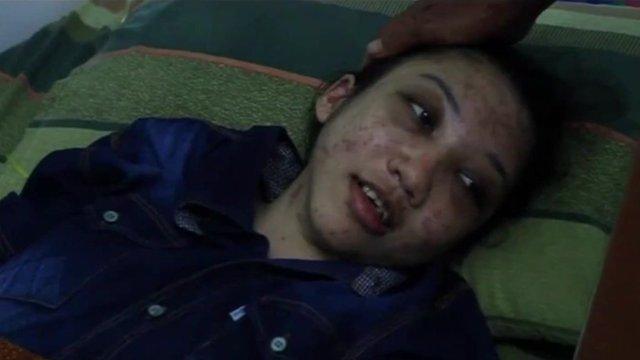Indonesian maid testifies in Hong Kong abuse trial
- Published
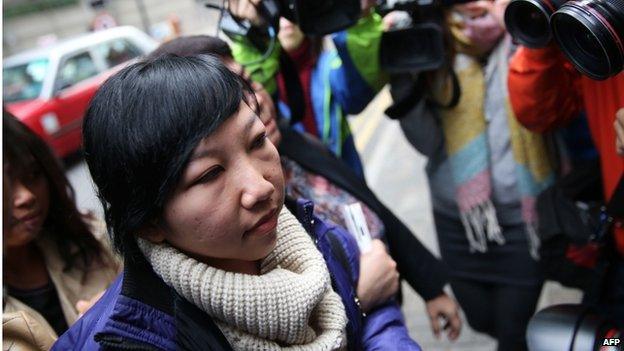
Ms Erwiana has accused her former employer of "torturing" her
The Indonesian maid at the centre of a high-profile abuse case has testified at the start of her former Hong Kong employer's trial.
Erwiana Sulistyaningsih says she was "tortured" by employer Law Wan-tung for eight months last year.
Her case drew global attention in January when she returned to Indonesia in a critical condition and was admitted to hospital.
Hong Kong residents employ about 300,000 maids from other parts of Asia.
Ms Erwiana, 23, described multiple instances of beatings and brutal assaults to the Hong Kong court on Monday.
"I was tortured," she said, adding that Ms Law did not give her enough food.
She told the court that at one point her employer had put a vacuum cleaner tube into her mouth and twisted it, injuring her lips.
Prosecutors accused Ms Law of using a mop, stick, ruler and hanger to assault Ms Erwiana, the South China Morning Post reported.
'Widespread abuse'
Ms Law has pleaded not guilty to multiple charges of assaulting Ms Erwiana and two other Indonesian maids, as well as to charges of failing to pay Ms Erwiana her wages.
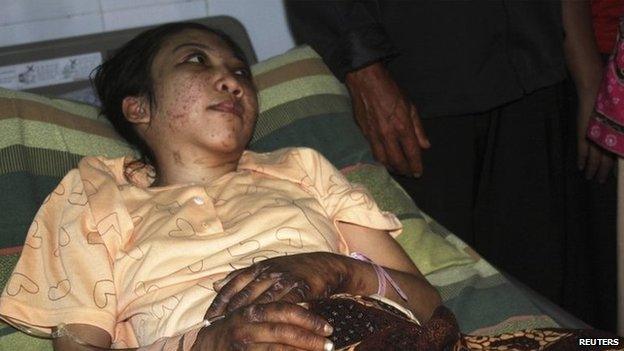
Ms Erwiana was in critical condition when she was warded in an Indonesian hospital in January
Ms Erwiana's case caused concern in the city, which relies significantly on domestic helpers from places such as Indonesia and the Philippines. Several thousand attended a public rally in January when her case first came to light.
Several migrant rights activists stood outside the court on Monday calling for justice for Ms Erwiana.
Amnesty International in June urged the Hong Kong government, external to end "widespread abuse and exploitation of migrant domestic workers" in the city.
The rights group published a report last year alleging abuses such as restrictions on freedom of movement, physical and sexual violence, lack of food and exploitative hours.
Ms Erwiana was named one of Time magazine's 100 most influential people earlier this year.
- Published29 April 2014
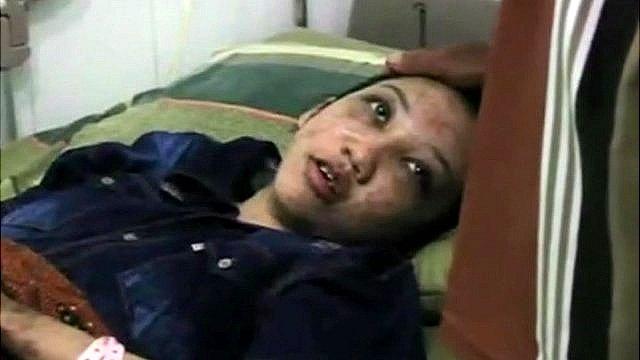
- Published20 January 2014
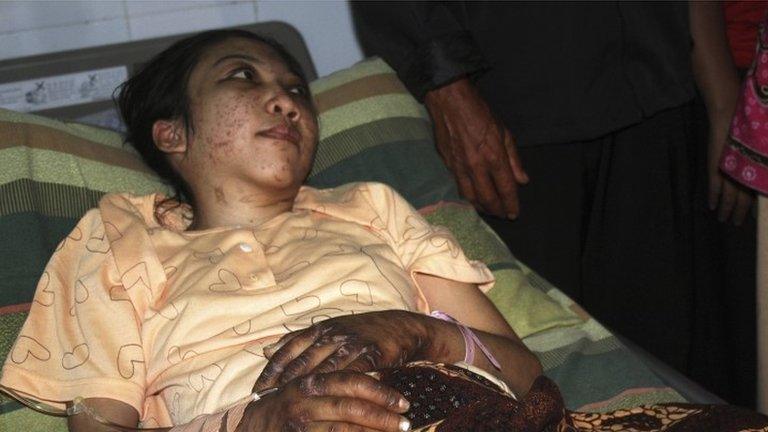
- Published21 January 2014
